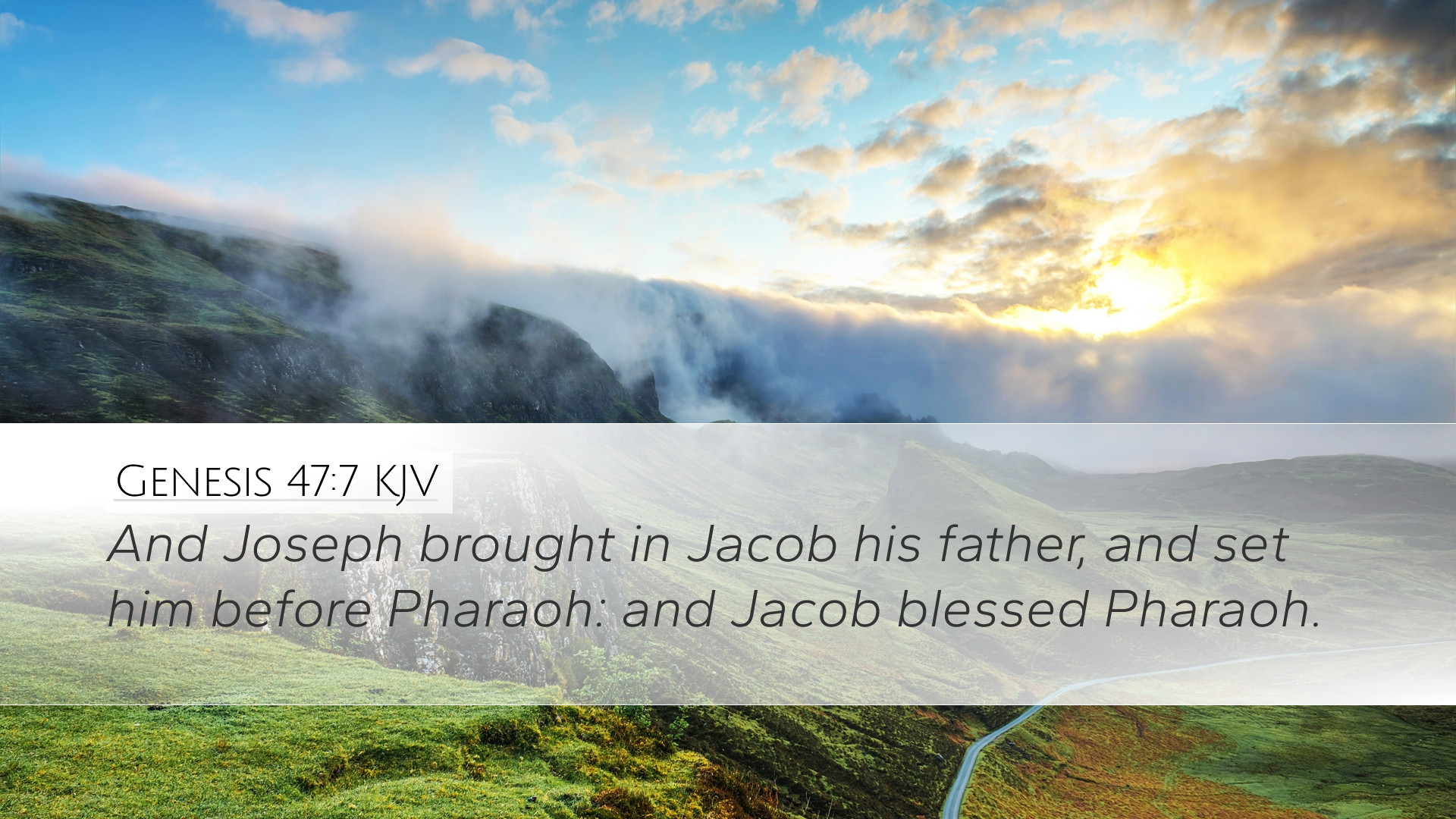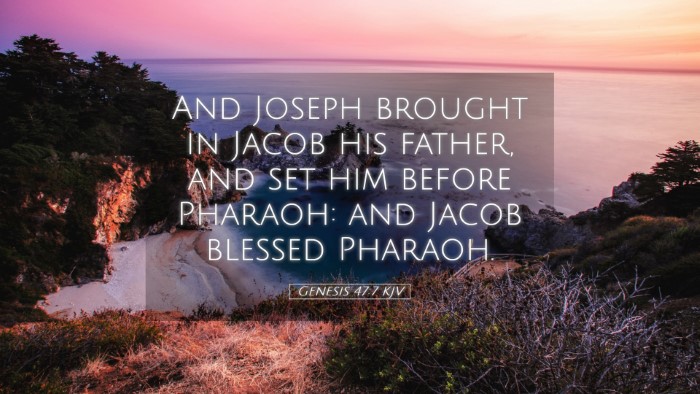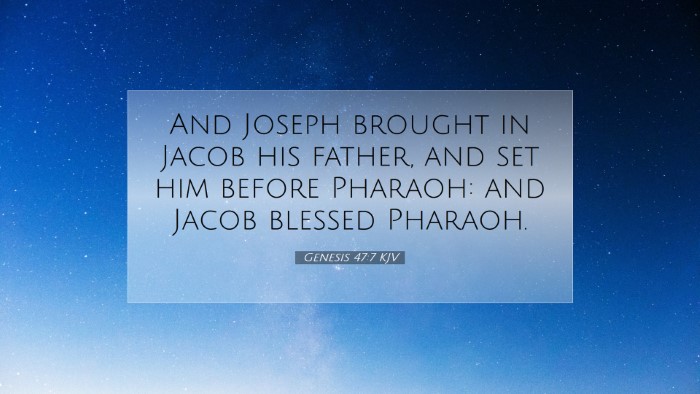Commentary on Genesis 47:7
Verse: "And Joseph brought in Jacob his father, and set him before Pharaoh: and Jacob blessed Pharaoh."
Introduction
This verse marks a significant moment in the narrative of Joseph and his family's relocation to Egypt. It encapsulates themes of honor, recognition, and the unfolding of God’s providential plan for Israel. In this commentary, we will delve into insights from public domain sources, reflecting on the theological implications of Joseph’s actions, Jacob’s blessing, and the broader context of covenantal relationships.
Contextual Overview
In the broader context of Genesis, this passage occurs after Joseph has risen to power in Egypt. The famine has driven his family from Canaan, prompting them to seek refuge in Egypt. It is essential to recognize the historical and cultural backdrop, where familial and social hierarchies played a vital role.
Joseph’s Role
Matthew Henry emphasizes Joseph's role as a bridge between his family and the Egyptian crown. He recalls how Joseph’s belief in God’s providence led him to a position where he could care for his family during a time of crisis. It was not merely a duty but a divine arrangement that allowed Joseph to serve as a savior figure.
Jacob Before Pharaoh
Joseph’s introduction of Jacob to Pharaoh is imbued with deep significance. Albert Barnes mentions that Pharaoh, being a great ruler, represented the pinnacle of worldly power and authority, placing Jacob, the patriarch, in a position to recognize and honor that authority.
The Blessing
When Jacob blesses Pharaoh, it is a moment laden with theological meaning. Adam Clarke interprets this act as a declaration of spiritual authority. Despite Pharaoh’s worldly status, Jacob, as a covenantal patriarch, holds a higher spiritual standing. The act of blessing signifies that divine authority transcends earthly governance.
Theological Implications
- The Sovereignty of God: This event illustrates God’s overarching control, orchestrating the events for the fulfillment of His covenant promises to Abraham, Isaac, and Jacob.
- Recognition of Authority: Jacob's respectful stance embodies an acknowledgment of the governing authority as ordained by God, which serves as a crucial lesson in the relationship between spiritual and earthly powers.
- Covenant Relationships: The interaction emphasizes the significance of covenant, showing how God’s people are to engage with the world while maintaining their identity and fidelity to His promises.
Joseph’s Faithfulness
Joseph’s act of bringing Jacob to Pharaoh underscores his faithfulness to his family and his God-given role. Henry remarks that this moment highlights the importance of intercession, where Joseph advocates for his family before the king, a reflection of Christ’s intercessory role for believers.
The Significance of the Blessing
Jacob’s blessing of Pharaoh serves a dual purpose. Firstly, it signifies God’s presence and blessing through His servant, reinforcing the notion that divine providence is at work even in foreign lands. Secondly, it foreshadows the future of Israel in Egypt, establishing a narrative where the chosen people are to be both blessed and a blessing in a foreign context.
Church Perspective
The Church today can draw parallels from Jacob’s actions. The act of blessing amidst an oppressive regime or a foreign culture is a reminder that Christians are called to bear witness to God's goodness, even when facing adversity. It reinforces the belief that believers have the authority to bless and influence society in profound ways.
Conclusion
Genesis 47:7 encapsulates a pivotal moment in the biblical narrative. It serves as a powerful reminder of God’s sovereignty, the significance of covenant relationships, and the role of believers in a world governed by both divine and earthly authority. Through this verse, we see how God’s plans unfold, inviting reflections on our own interactions with authority and our roles in God’s redemptive story.


